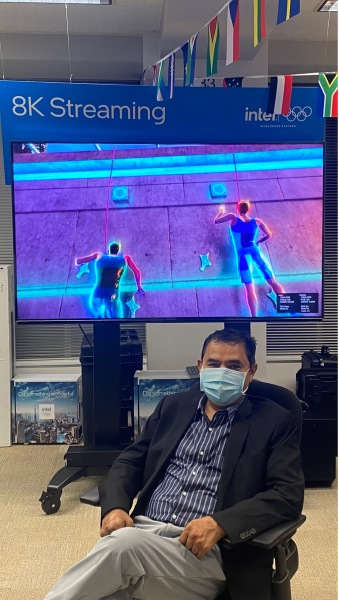
The Transform Technology Summits start off October 13th with Low-Code/No Code: Enabling Enterprise Agility. Register now!
Google Cloud Next is taking spot this week practically. While there are generally a lot of announcements made at their annual occasion, one of the lesser highlighted announcements this time about is for Google’s Intelligent Product Essentials.
With Intelligent Product Essentials, Google basically offers all the crucial elements to deploy distributed IoT and edge computing options. Components are incorporated for information ingestion, connectivity each for information acquisition and IoT device OS/safety updates, integration of acquired information into a database appropriate for the form of information generated (e.g., spatial information, textual information, and so on.), central and/or edge cloud application processing, AI/ML evaluation, enabling modifications/additions to the processes via open APIs, and access to work across a multi-cloud infrastructure (couple of organizations work with a single cloud infrastructure).
It is significantly less of a solution and more of a template or workbench, tying a quantity of connectivity and integration elements with each other to give organizations a head start off on a full IoT and edge deployed answer. Google presents some direct engagement with its consumers but relies on partnering with specialized systems integrators (a list of which will be expanded more than time) to full a customer’s answer. The SI would generally focus on deploying IoT elements and sensors that want to be managed even though also enabling the resulting information to be processed for the insights on expected actions and/or user and device interactions.
In Google’s announcement of the supplying, it focuses on use instances connected to customer solutions — such as wise ovens and wise bicycles. But I anticipate more enterprises and organizations to be interested in how Intelligent Product Essentials can assist companies build modern day environments for machine monitoring, upkeep, and failure evaluation, offering updateable and safe “things,” and how it can assist organizations deploy complicated IoT options for wise-cities infrastructure, healthcare monitoring, remote inspections, and so on. Clearly, the want for these IoT enabled and edge-powered options continues to develop.
Google does not charge for this solution per se rather it gets revenues for the elements consumers choose in the GCP solutions that are foundational to this answer set. Built on a Kubernetes microservices architecture, its utilizes DataFlow to move information into the cloud atmosphere and numerous possible databases of the customer’s deciding on (e.g., Firebase), which creates a information warehouse that can be analyzed by Google AI/ML tools (e.g., Vertex AI, or Vertex at the edge), and ultimately handle the numerous IoT elements remotely with Google management tools. Interestingly, Google does not call for that the IoT devices run its Android OS, as it realizes a lot of IoT devices run an RTOS or some other easy OS.
Such a foundational platform is an eye-catching way to build and deploy industrial devices that generally endure from poor user knowledge and manageability — from trains to excavators to industrial machinery to healthcare monitors, and so on. Many organizations can advantage from such capability, but a lot of also lack the sources (each monetary and skilled employees) to implement a modern day information driven atmosphere to increase their operations. Any reference design and style that brings with each other the significant elements into an integrated strategy is extremely valuable.
While this supplying from Google could not be an alternative for organizations that call for a absolutely optimized and customized answer and that can take a lot of months or years to build, it presents a simplified way to speed up time-to-deployment for a lot of organizations, which indicates genuine income enhancement, and/or a decreased reliance on scarce sources. Indeed, even though there is a higher degree of variability involved based on a user organization’s specific needs, I estimate that a template-structured answer like this can generally reach a 25%-40% reduction in efforts involved, sources required, and/or time-to-deployment.
GCP as a cloud answer is competitive, and Google has some of the greater analytics and AI capabilities offered to provide genuine information insights. But as the quantity 3 public cloud provider for enterprises, Google has to attempt tougher. Both AWS and Microsoft have their personal IoT and edge computing initiatives and have made some important inroads, especially in crucial industries like automotive, wise cities, and wellness care. But the market place for edge and IoT connected options is nonetheless nascent, so Google getting into somewhat later with a GCP supplying seriously is no significant setback. And Google does have a significant chance to convince possible consumers that its analytics and AI capability, honed more than years for its personal solution demands, is a significant benefit. But Google is nonetheless playing catch-up, offered the head start off and greater recognized solutions from its competitors.
Bottom Line: The possible added benefits in operational efficiency and security attributed to IoT, edge, and information driven evaluation of corporation operational and business enterprise processes are really eye-catching to a lot of organizations, but they could not have the suitable sources to pursue such initiatives. With Google’s Intelligent Product Essentials foundation, a lot of more organizations, even smaller sized scale and/or medium size organizations, have a path forward to producing IoT and edge a reality. Integrated answer templates like Google’s Intelligent Product Essentials are a fantastic way to reach sophisticated IoT and edge enabled options with far significantly less friction than absolutely custom options.
Jack Gold is the founder and principal analyst at J.Gold Associates, LLC., an information and facts technologies analyst firm based in Northborough, MA., covering the a lot of elements of business enterprise and customer computing and emerging technologies. Follow him on Twitter @jckgld or LinkedIn at https://www.linkedin.com/in/jckgld.






